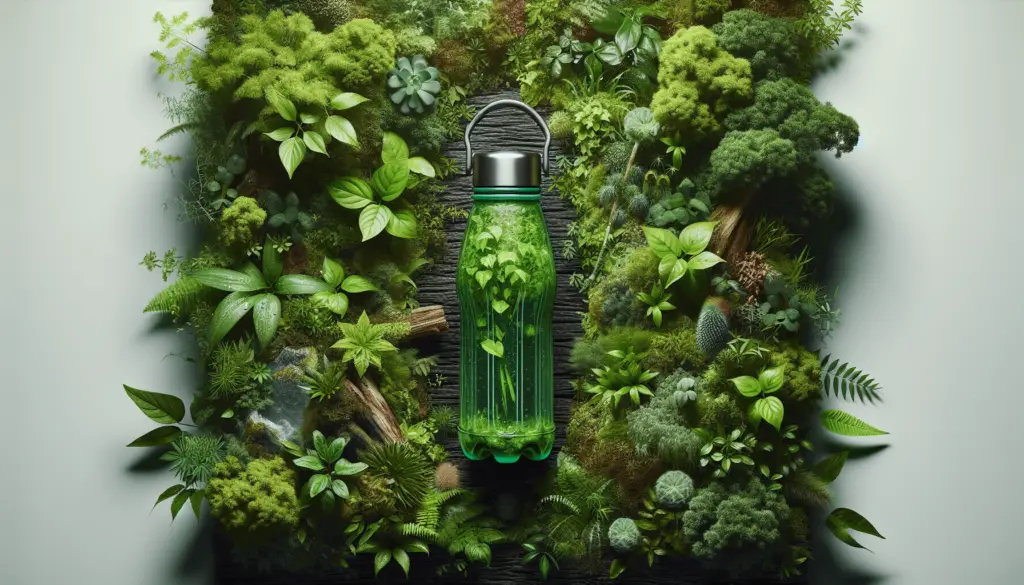Are You Concerned About the Environment?
If you are someone who is concerned about the well-being of our planet and the impact of human activities on the environment, you are not alone. Many people are becoming increasingly aware of the need to take action to protect and preserve the earth for future generations. One way that individuals can contribute to environmental conservation efforts is through prepping – the practice of preparing for emergencies and disasters. In this article, we will explore the role of prepping in promoting environmental conservation and how you can make a positive impact on the planet through preparedness.
What is Prepping?
Before we delve into the role of prepping in environmental conservation, let’s first define what prepping actually is. Prepping, short for “preparing,” is the practice of making preparations in advance for potential emergencies or disasters. This can include stockpiling essential supplies such as food, water, and medical supplies, as well as developing skills for self-reliance in crisis situations. Preppers often create emergency plans and kits to ensure they are ready to face unexpected events, such as natural disasters, power outages, or civil unrest.
Prepping Essentials Checklist
To get started with prepping, it’s important to have a basic understanding of the essential supplies and tools you may need in an emergency. Here is a checklist of prepping essentials to consider adding to your emergency kit:
| Essential Supplies | Description |
|---|---|
| Water | Store at least one gallon of water per person per day for at least three days |
| Non-perishable Food | Stock up on canned goods, dried fruits, nuts, and other long-lasting foods |
| First Aid Kit | Include bandages, antiseptic wipes, pain relievers, and other medical supplies |
| Flashlight and Batteries | Keep a reliable light source on hand for power outages |
| Multi-tool | Have a versatile tool for various tasks, such as a Swiss Army knife |
| Matches or Lighter | Ensure you can start a fire for warmth and cooking |
| Blankets | Stay warm in cold weather with extra blankets or sleeping bags |
| Personal Hygiene Items | Don’t forget items like toilet paper, soap, and toothpaste |
| Cash | Keep some cash on hand in case of a banking system failure |
By having these essential supplies on hand, you can be better prepared to weather emergencies and reduce the strain on local resources during a crisis.
The Impact of Human Activities on the Environment
To understand the role of prepping in promoting environmental conservation, it’s essential to recognize the impact of human activities on the environment. Climate change, pollution, deforestation, and loss of biodiversity are just a few of the environmental challenges that our planet faces today. Human activities, such as burning fossil fuels, intensive agriculture, and urban development, have contributed to these issues and put stress on the earth’s natural systems.
Climate Change
One of the most pressing environmental issues of our time is climate change, caused primarily by the release of greenhouse gases into the atmosphere. The burning of fossil fuels for energy production, transportation, and industrial processes is a major contributor to global warming and the resulting changes in temperature patterns, sea levels, and weather events. Climate change has far-reaching impacts on ecosystems, wildlife, and human communities around the world.
Pollution
Pollution from various sources, such as industrial emissions, agricultural runoff, and plastic waste, poses a significant threat to the environment and human health. Air pollution can lead to respiratory problems and cardiovascular diseases, while water pollution can contaminate drinking water sources and harm aquatic life. Land pollution from waste disposal and chemical contaminants can degrade soil quality and threaten food security.
Deforestation
The clearing of forests for agriculture, logging, and urban development has led to widespread deforestation in many parts of the world. Deforestation not only reduces biodiversity and habitat for wildlife but also contributes to climate change by releasing carbon dioxide stored in trees and soil. Forests play a critical role in capturing carbon dioxide from the atmosphere and regulating the climate, making deforestation a major environmental concern.
Loss of Biodiversity
The loss of biodiversity, or the variety of life forms on earth, is a significant consequence of human activities such as habitat destruction, pollution, and overhunting. Extinction rates are increasing at an alarming rate, with many species facing the risk of disappearing forever. Loss of biodiversity can disrupt ecosystems, reduce ecosystem services like pollination and natural pest control, and jeopardize the stability of the planet’s life-support systems.

The Role of Prepping in Environmental Conservation
In light of the environmental challenges facing our planet, prepping can play a valuable role in promoting environmental conservation and sustainability. By taking steps to prepare for emergencies and disasters, preppers can reduce their reliance on external resources, minimize waste, and contribute to the overall resilience of their communities. Let’s explore some ways in which prepping can support environmental conservation efforts:
Resource Efficiency
Prepping encourages individuals to be mindful of their resource consumption and to use resources efficiently. By stockpiling essential supplies and reducing reliance on single-use items, preppers can minimize waste and lessen their environmental footprint. Choosing durable, reusable products over disposable ones and practicing energy conservation can help conserve valuable resources and reduce the strain on the environment.
Self-Reliance
Prepping promotes self-reliance and independence by empowering individuals to take control of their own well-being in times of crisis. By being prepared with essential supplies, skills, and knowledge, preppers can avoid unnecessary panic buying, reliance on external aid, and depletion of community resources during emergencies. Self-reliance not only improves individual resilience but also fosters a sense of responsibility and accountability for one’s actions towards the environment.
Sustainable Living Practices
Prepping can encourage sustainable living practices that promote environmental conservation and long-term resilience. Preppers often grow their food, practice water conservation, and utilize renewable energy sources to reduce their environmental impact and increase self-sufficiency. By adopting sustainable initiatives such as composting, rainwater harvesting, and off-grid living, preppers can contribute to a more eco-friendly lifestyle that benefits both themselves and the planet.
Community Collaboration
Prepping fosters community collaboration and mutual support, which are essential for addressing environmental challenges and promoting resilience. By sharing resources, skills, and knowledge with neighbors and local organizations, preppers can build stronger, more resilient communities that can respond effectively to emergencies and disasters. Collaborative efforts, such as community gardens, tool libraries, and emergency response teams, can enhance community cohesion and reduce the environmental impact of individual households.
Conservation Advocacy
Prepping can serve as a platform for conservation advocacy and environmental stewardship, raising awareness about the importance of protecting the planet and preserving its natural resources. Preppers can engage in advocacy campaigns, support conservation organizations, and participate in environmental initiatives to promote sustainable practices and policies. By speaking out against environmental degradation and advocating for conservation efforts, preppers can help mobilize broader support for environmental conservation and inspire positive change in their communities.
How You Can Make a Difference
As an individual concerned about the environment and the future of our planet, you can make a difference by incorporating prepping practices into your lifestyle and promoting environmental conservation in your community. Here are some practical steps you can take to support environmental sustainability through prepping:
Start Prepping for Emergencies
Begin by creating an emergency preparedness kit with essential supplies and resources to sustain your basic needs in times of crisis. Stock up on food, water, first aid supplies, and other essentials, and develop a family emergency plan to ensure everyone knows what to do in an emergency. By taking proactive steps to prepare for disasters, you can protect yourself, your loved ones, and the environment from the impacts of emergencies.
Reduce, Reuse, Recycle
Practice the three Rs of sustainability – reduce, reuse, and recycle – to minimize waste and conserve resources in your daily life. Cut down on single-use plastics, opt for reusable products, and recycle materials whenever possible to reduce your environmental footprint. By being mindful of your consumption habits and making eco-friendly choices, you can help reduce pollution, conserve natural resources, and promote a healthier planet for future generations.
Adopt Sustainable Living Practices
Integrate sustainable living practices into your routine to promote environmental conservation and resource efficiency. Grow your food in a garden, compost organic waste, conserve water through rainwater harvesting, and generate renewable energy through solar panels or wind turbines. By embracing sustainable initiatives and reducing your reliance on fossil fuels, you can contribute to a more eco-friendly lifestyle that benefits both you and the environment.
Get Involved in Community Initiatives
Engage with your neighbors, local organizations, and community groups to collaborate on environmental conservation initiatives and disaster preparedness efforts. Join community gardens, volunteer for emergency response teams, participate in conservation projects, and support sustainable development initiatives in your area. By working together with others towards common goals, you can build stronger, more resilient communities and make a positive impact on the environment.
Educate and Advocate for Conservation
Raise awareness about environmental issues and promote conservation advocacy in your community by sharing information, resources, and best practices with others. Host workshops, organize educational events, and support conservation campaigns to inspire positive change and mobilize collective action for the planet. By advocating for sustainable practices and policies, you can help influence decision-makers, promote environmental stewardship, and empower others to take action for a greener future.

Conclusion
In conclusion, prepping can play a valuable role in promoting environmental conservation and sustainability by encouraging resource efficiency, self-reliance, sustainable living practices, community collaboration, and conservation advocacy. By incorporating prepping practices into your lifestyle and promoting environmental conservation in your community, you can make a positive impact on the planet and contribute to a more resilient, environmentally conscious society. Take proactive steps to prepare for emergencies, reduce waste, adopt sustainable initiatives, engage with your community, and advocate for conservation efforts to support environmental sustainability and protect the earth for future generations. Together, we can make a difference in promoting environmental conservation through prepping and creating a more sustainable future for all.
